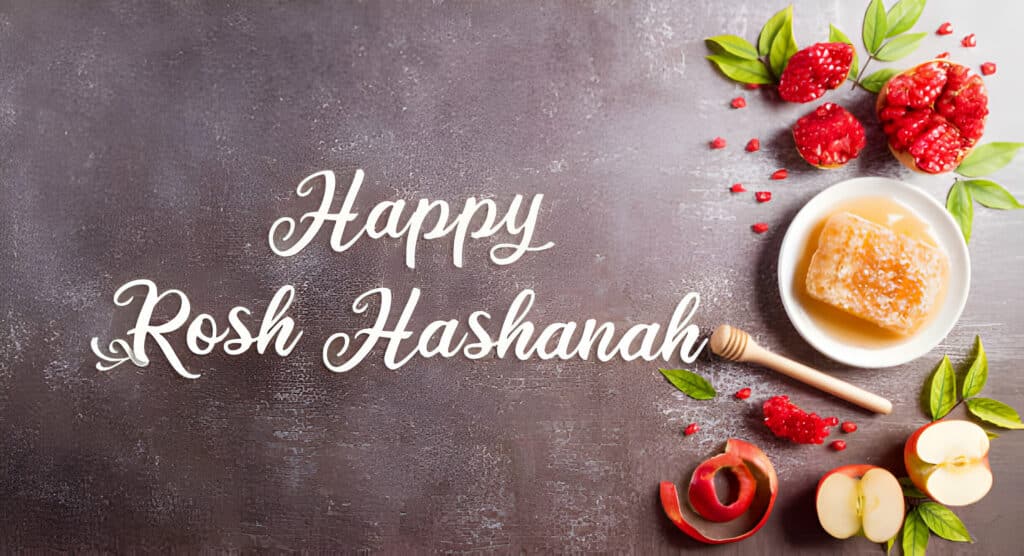Rosh Hashanah, the Jewish New Year, is a time of reflection, renewal, and celebration. Observed by Jewish communities worldwide, it marks the beginning of the High Holy Days and offers a chance to reflect on the past year while looking forward to the future. In 2024, Rosh Hashanah presents an opportunity to engage with ancient traditions in a modern context.
What is Rosh Hashanah?
Rosh Hashanah, meaning “Head of the Year” in Hebrew, is one of the most significant holidays in Judaism. It is both a time of joy and solemnity, celebrating the creation of the world and serving as a period for introspection and repentance. Traditionally, it is believed to be the anniversary of the creation of Adam and Eve.

rosh hashanah 2024
When is Rosh Hashanah 2024?
In 2024, Rosh Hashanah begins at sundown on Friday, October 11, and ends at nightfall on Sunday, October 13. The holiday spans two days, reflecting its importance and allowing for extended time in prayer and celebration. It’s important to note that Jewish holidays begin at sunset on the evening before the date specified.
Key Traditions and Customs
Rosh Hashanah is rich with traditions that hold deep symbolic meaning:
- Shofar Blowing: The sounding of the shofar, a ram’s horn, is a central ritual. It serves as a call to repentance and spiritual awakening.
- Festive Meals: Families gather for meals featuring symbolic foods such as apples dipped in honey for a sweet new year.
- Tashlich Ceremony: This involves casting bread crumbs into flowing water to symbolize casting away sins.
- Synagogue Services: Special prayers and liturgies are recited, including the Unetaneh Tokef, which reflects on themes of life and death.
Rosh Hashanah Symbols
The holiday is marked by several symbols that enhance its themes:
- Round Challah: Unlike regular challah bread, Rosh Hashanah challah is round to symbolize continuity.
- Apples and Honey: Eaten to express hopes for a sweet year ahead.
- Pomegranate: Its many seeds symbolize a wish for good deeds as numerous as the seeds.
- Shofar: The ram’s horn blown during services as a spiritual wake-up call.
Preparing for Rosh Hashanah
Preparation for Rosh Hashanah involves both spiritual and practical elements:
- Spiritual Preparation: This includes self-reflection, seeking forgiveness from others, and making amends.
- Home Preparation: Families clean their homes and prepare special meals. In 2024, with Rosh Hashanah beginning on a Friday evening, preparations will also include considerations for Shabbat observance.
Rosh Hashanah Greetings
During Rosh Hashanah, it is customary to greet others with phrases such as:
- “Shanah Tovah”: Meaning “Good Year.”
- “L’Shanah Tovah Tikatevu”: Meaning “May you be inscribed [in the Book of Life] for a good year.”
These greetings reflect the hope for a positive year ahead.
The Ten Days of Awe
Rosh Hashanah marks the beginning of the Ten Days of Awe, leading up to Yom Kippur. This period is dedicated to introspection, prayer, and repentance. It is considered a time when God judges all creatures and decides their fate for the coming year.
Celebrating Rosh Hashanah in Modern Times

rosh hashanah 2024
In contemporary society, Jewish communities have adapted traditional practices to fit modern lifestyles:
- Adaptations: Some communities incorporate creative elements into services or hold family-friendly events.
- Virtual Observances: With technological advancements, many congregations offer online services or hybrid options to accommodate those unable to attend in person.
Conclusion
Rosh Hashanah 2024 offers an opportunity to connect with ancient traditions while embracing modern adaptations. As families gather to celebrate this sacred time, they reflect on past actions and set intentions for personal growth in the coming year. Whether through traditional rituals or modern adaptations, Rosh Hashanah remains a powerful time for renewal and reflection.
